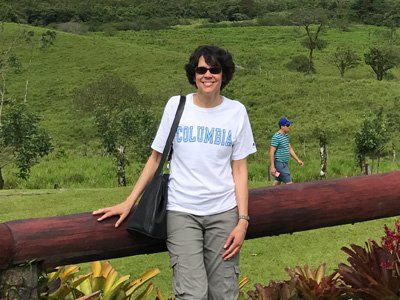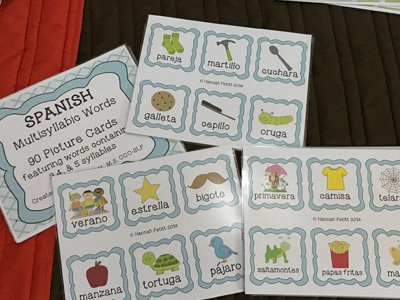Beyond Anything I Had Envisioned
Gebbie researcher Soren Lowell reflects on her volunteer experiences in South America

Editors Note:
Prior to returning to campus in the fall after a research leave, Soren Lowell, associate professor of communication and speech disorders, sought out an immersion experience—one that could advance her own cultural competence skills and provide service to the international community.
To that end, Lowell embarked on a three-week volunteer experience in Costa Rica working at a local orphanage with children ages 19 months though 7 years.
Lowell had previously worked as a bilingual clinician for many years, but since beginning her academic career, she felt she had fewer opportunities to work with Spanish-speaking clients.
Below are her reflections on her summer trek and how she was able to apply her important research in the South American locale.
=---=
I found an organization called the GoECO (an ecotourism company) that works with local language and volunteer institutes around the world. They offered a three-week volunteerism project in the area of social services, and worked with a fantastic local institute in San José, Costa Rica, called the Costa Rican Language Academy (CRLA).
The CRLA coordinated every aspect of my stay, including arranging for me to live with a wonderful host family who warmly welcomed me and shared many insights about Costa Rican culture in our daily interactions. Through the CRLA, I was able to take intensive Spanish classes for a week and then they organized a volunteerism project for me at a local orphanage. When the orphanage learned that I was a certified speech-language pathologist who was fluent in Spanish, they were excited by the prospect of obtaining input and guidance for several children at the orphanage for whom they had concerns regarding their speech-language skills.
Optimal service delivery was not available for these children, who would only be eligible for speech-language assessment and treatment after age 7, if they qualified and if services were available. This orphanage served children birth through 7 years. They had a dedicated team of daily care providers—referred to as las tías, "the aunts"—and a wonderful full-time psychologist. While wary at first of who I was and what my role with the children would be, the staff and I soon developed a deep mutual appreciation and admiration. I performed informal speech and language screenings with about five of the children, and ended up developing and initiating language and speech stimulation programs for most of them. Through daily, individual services, I built rapport with the children and the caretakers, and demonstrated concepts of language stimulation to all the staff.

For the caretakers, they were amazed to see the communicative abilities of the children they cared deeply for blossom. When I started, one little 27-month-old spent many of his daytime hours crying loudly over frequent frustrations, which he had no words to express. Within two weeks he was communicating several wants and needs in single words, including the highly functional word "no," and his crying decreased dramatically. For me to see this child's world light up with the initiation of language skills was a phenomenal reminder of the power of effective communication, and the grace and fortune that we have as speech-language pathologists who can potentially transform the lives of the wonderful people we work with.
Using the model of community-based intervention, I was able to train the caretakers and psychologist at the orphanage on general concepts of early language stimulation, and set up specific stimulation programs for the children I had worked with for several weeks. My hope was that not only the children with speech-language needs who were currently under the care of the orphanage, but also many, many future children who would be housed there might benefit from the training I provided.
The opportunity for me to immerse myself in professional Spanish service delivery brought my fluency to new levels, and the overall cultural and service experience I had went beyond anything I had envisioned and hoped for.
--
Lowell is an associate professor of communication and speech disorders and the director of the Voice and Swallowing Physiology Laboratory at the Gebbie Speech, Language and Hearing Clinic (housed in the College of Arts and Sciences). Currently, her research focuses on characteristics, mechanisms and treatment of voice and swallowing disorders. She was also the recipient of the 2014 Prize for Excellence in Master’s Level Teaching in Syracuse University’s College of Arts and Sciences.
Lowell holds a Ph.D. in speech and hearing sciences and a master’s degree in speech-language pathology, both from the University of Arizona. Prior to her appointment at SU in 2008, Lowell was a research fellow at the National Institutes of Health in Bethesda, Maryland.
Media Contact
Amy Manley
